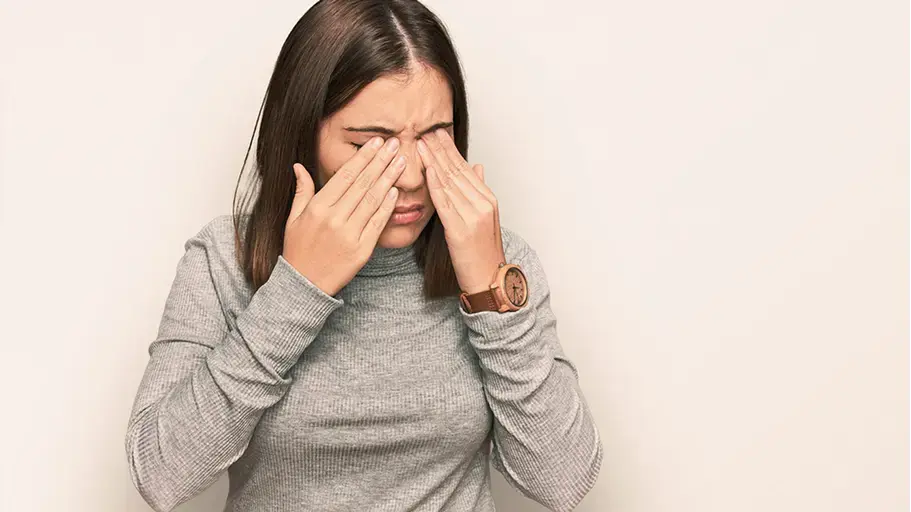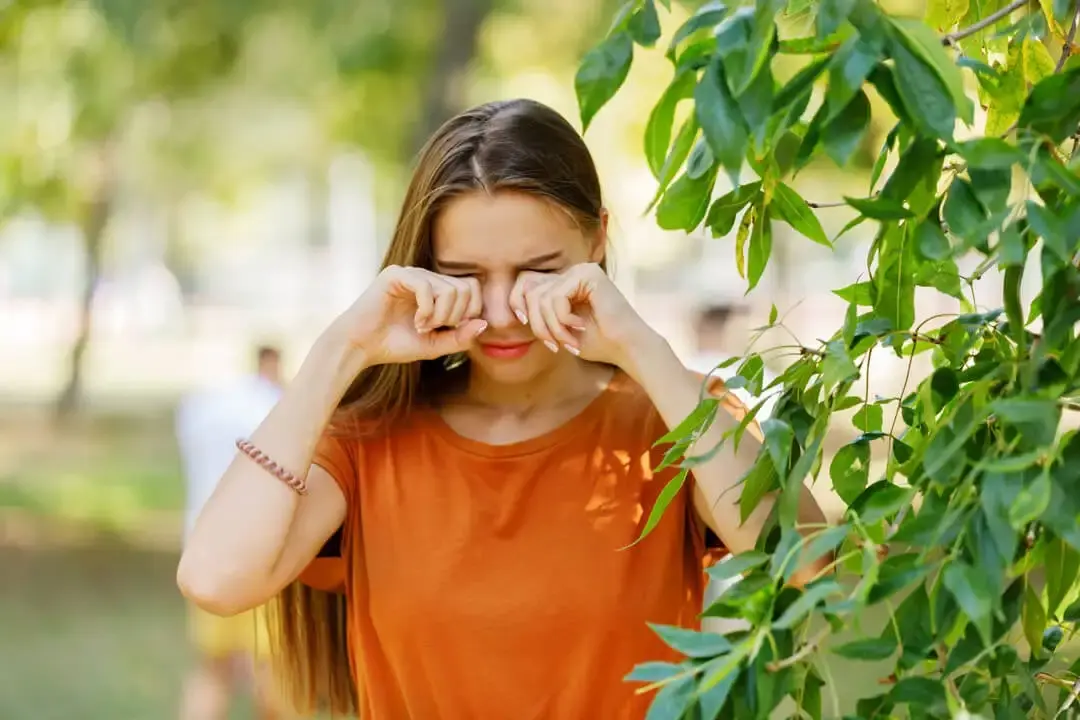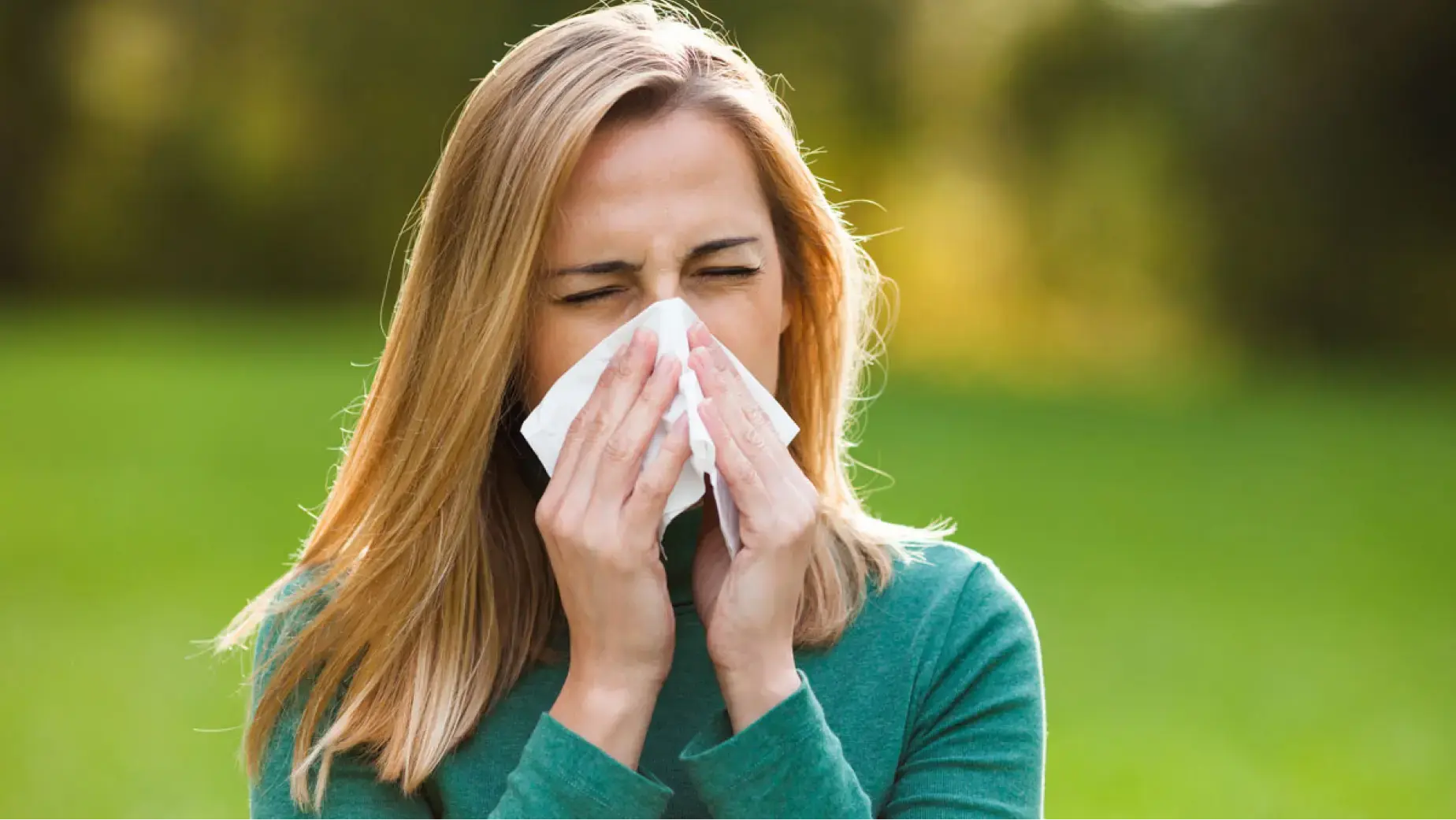What Causes Watery Eyes?
Tearing or watery eyes can be caused by a wide range of irritants, including dirt and debris in the air, not to mention infections, illness or injury – which can all result in aggravated tear ducts1. Allergies, however, are among the more common triggers for teary eyes. Indeed, airborne allergens such as pollen and dust can lead to many symptoms, including watery eyes.
This is because glands in your eye will attempt to flush out foreign substances and airborne irritants by producing tears2. But problems arise when too many tears are produced, or tear production doesn’t stop for a prolonged period of time – leading to eyes that are red, swollen and irritated.
How to Tell if Your Watery Eyes are Caused by Allergies
It can be difficult to tell if itchy, watery eyes are an allergy-related symptom, or caused by something else.
However, there are several ways to determine if an allergy is to blame for your eyes watering:
Other symptoms involved – watery eyes, runny nose and coughs are all common symptoms of allergic reactions. However, if you’re feeling additional pain, a headache or otherwise, it might be that you have a virus or other illness
Contact with allergens – your teary eyes are more likely to be allergy related if you’ve come into contact with known triggers, such as a dusty room or a family pet
Time of day – some allergy triggers are more present at certain times of day. Pollen, for example, rises with warm air in the early hours. Watery eyes in the morning or eyes watering at night could be down to particular triggers, such as dust or mold, or general tiredness
Time of year – seasonal elements can affect your eyes. Pollen is more present in the warmer months, so symptoms during ‘hay fever season’ could often be a result. If your symptoms only emerge at certain times of the year, its likely that allergies are the cause
Teary eyes can be a symptom of a variety of illnesses too, so it’s always best to contact a medical professional if you find that your eyes keep watering for prolonged periods.
Injuries to the eye or trapped foreign objects can all cause tear production too. It’s best to consult a medical professional if you have other symptoms, pain or prolonged discomfort.
There are ways to tell whether your symptoms may be down to a virus or infection too, such as the common cold.
Common Allergens that May Cause Watery Eyes
A variety of allergens can lead to watery eyes. Some of the common ones you might encounter include3:
Insect Bites
Watery Eyes Treatment & Remedies
Learning how to stop watery eyes effectively is all about knowing which particular allergens (or other causes) may be triggering your symptoms.
Usually, the best course of action is to try and steer clear of your triggers, but this might not always be possible. Below, you’ll find some common treatments and home remedies for alleviating watery eyes.
Watery Eyes Treatments

Taking an antihistamine tablet can help reduce eye irritation and other common allergy symptoms. The ZYRTEC® family of products can help to clear up irritants, and start working at hour one. If you suffer from allergy symptoms regularly, such as during peak pollen season, it may be beneficial to take a ZYRTEC® tablet for 24-hour relief, to reduce watery eyes and inflammation

TC drops can help ease dryness within the eyeball, which often causes the glands to overcompensate for lack of moisture with more and more tear production
Watery Eyes Home Remedies

Shutting windows and blocking drafts can keep airborne irritants out of your home. Ensure windows and doorways are kept closed during peak allergy periods, such as early morning on summer days

Using a cold compress can provide relief and soothe discomfort around the eyes. Apply a cold cloth or flannel to your forehead and eye area to alleviate some of the symptoms

Wearing glasses or sunglasses can help reduce the amount of airborne irritants your eyes come into contact with. Glasses can help to lessen exposure to dust, pollen and dander
References
https://my.clevelandclinic.org/health/symptoms/17944-watery-eyes
https://www.mayoclinic.org/symptoms/watery-eyes/basics/definition/sym-20050821
https://www.mayoclinic.org/symptoms/watery-eyes/basics/causes/sym-20050821
Links to other parties’ articles and websites are provided for convenience only. Kenvue is not responsible for their content.



